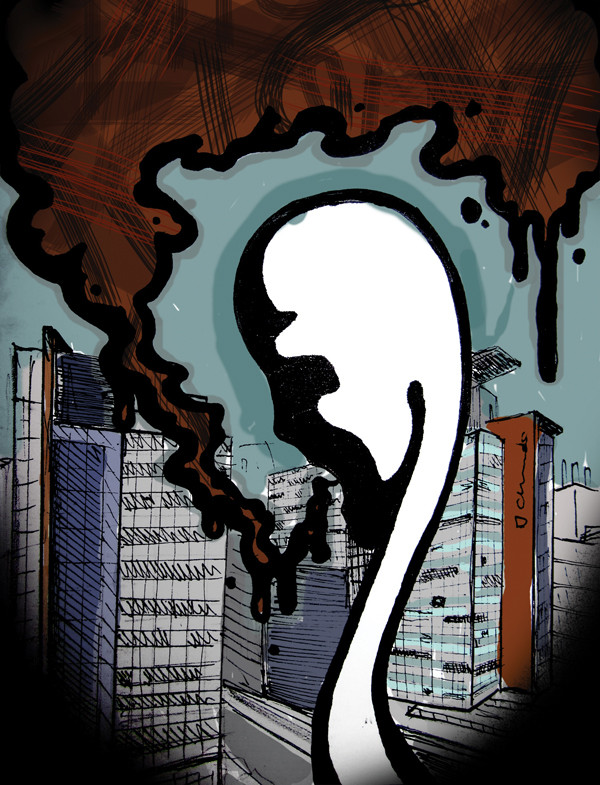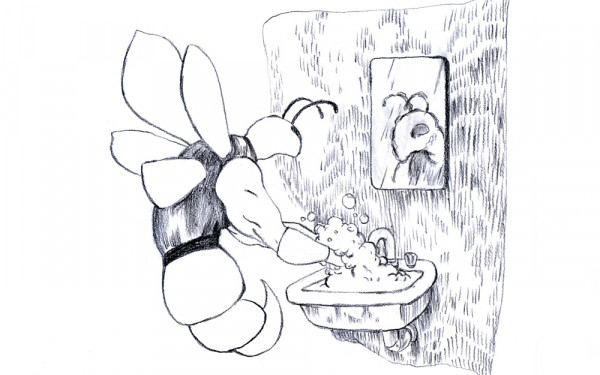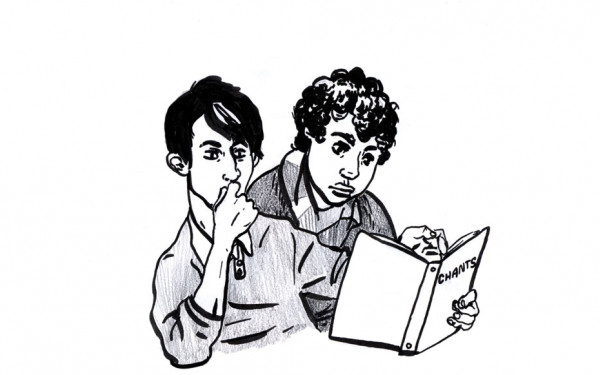Engineering a Culture of Respect
Faculty History No Excuse for Inappropriate Chants
The surfacing of ugly, degrading chants that encourage sexism and violence against women on university campuses is nothing new.
In the last academic year alone, there have been multiple instances of these chants across the country, from the University of British Columbia to Halifax’s Saint Mary’s University.
After the inevitable—and deserved—backlash from those who see the sheer inappropriateness of the chants, the student association deemed responsible for the chants usually issues a half-hearted apology, and things move on from there.
In an effort to promote safety and inclusivity at Concordia, the Engineering and Computer Science Association decided at their last council meeting on Feb. 10 to ban certain chants from all events hosted by the faculty of Engineering and Computer Science or its societies.
“I wish that all the ladies / were bricks in a pile / and I was a mason / I’d lay ‘em all in style” are a common version of the lyrics to one verse of a chant traditionally sung at ECA events such as Frosh or the Engineering Games. Other chant lyrics mention sexual assault, rape and physical violence—mostly against women—and others are racist, homophobic or glorify necrophilia and pedophilia.
At the meeting, it was mentioned that, to many senior students and alumni, these chants are a part of engineering culture—a culture that seems to exist across the country—and will be difficult to stamp out.
The recent outrage over chants encouraging sex with minors sung at UBC and St. Mary’s has sparked a discussion on the some of the more questionable traditions of students.
In an interview with The Globe and Mail, Jared Perry, who resigned as president of Saint Mary’s student association amid the controversy, said, “We didn’t see the message. As odd as it sounds we didn’t see the message.”
The songbooks detailing the lyrics of these chants shed light on how horrifying they truly are. A McMaster University engineering student spirit group apart of the McMaster Engineering Society, the Redsuits, was suspended for its connection to a book containing the lyrics to commonly sung chants.
One of the songs printed in the booklet was specifically mentioned in the proposal at council. A disclaimer before the song reads, “We must warn: there is no good place to sing this. People will be offended. The content of the next page includes: bloody rape, murderous incest, child mutilation, and fetal ingestion at the very least. Proceed with caution.”
The MES has stated publicly it is not associated with the chant book and, despite not being able to offer evidence in support of its assertions, the book’s existence was not widely known amongst engineering students.
An ENCS student who partook in the EngGames said that a lyric booklet had been printed for the event some years prior, and that senior participants had shared them around so that freshmen could learn the chants.
“The songs are wrong,” he said. “But that’s why they are funny. We’re all smart enough to differentiate jokes from reality.”
While students should be capable of understanding the difference between song lyrics and real life, the reality is that women aged 18 to 24 experience the highest rates of sexual violence in the country.
These chants are much more than mere jokes or satire for many people. In engineering classes, men tend to greatly outnumber women, and it’s no surprise considering the sexism that is supposedly part of the engineering “culture.”
It isn’t a question of being smart enough to distinguish lyrics from reality, as the ENCS student suggests, it’s a question of understanding the implications of gleefully chanting about sexually assaulting minors.
As Perry said, it’s easy to overlook the deeper message in the heat of the moment, but a critical eye—or ear—should be taken to the activities one participates in. Just because something is tradition, or the groups it affects participate as well, or they are not done with ill intent, does not mean that it is not harmful.
Originally, the motion presented to the ECA by the Concordia chapters of the National Society of Black Engineers, Women in Engineering and Engineers Without Borders, would have had those who break the ban on the chants and any other sexist, homophobic or racist behaviours immediately removed from the event.
After a lengthy discussion, council agreed to warn anyone participating in such behaviours before kicking them out. While this could create confusion, as supervisors cannot keep track of infractions in any easy manner, it gives supervisors an opportunity to explain to offenders why their actions are not welcome, allowing a chance for the offender to hear exactly why the chants are utterly inappropriate.
Additionally, the motion mandates that “all executives, councils and leaders, including frosh leaders of the ECA, attend a mandatory training workshop pertaining to the issue.”
Such a motion is a positive step forward for Concordia’s engineering and computer science community. But it’s going to take a lot more to ensure students no longer see sexual assault, racism and physical violence as a laughing matter, and to truly create a culture of learning and respect out of one of exclusion and degradation.
Clarification: A previous version of this article did not specify that the MES has denied any involvement in the proliferation at McMaster University of a book of chants deemed vulgar and intolerant. The article has been updated to reflect this information.






